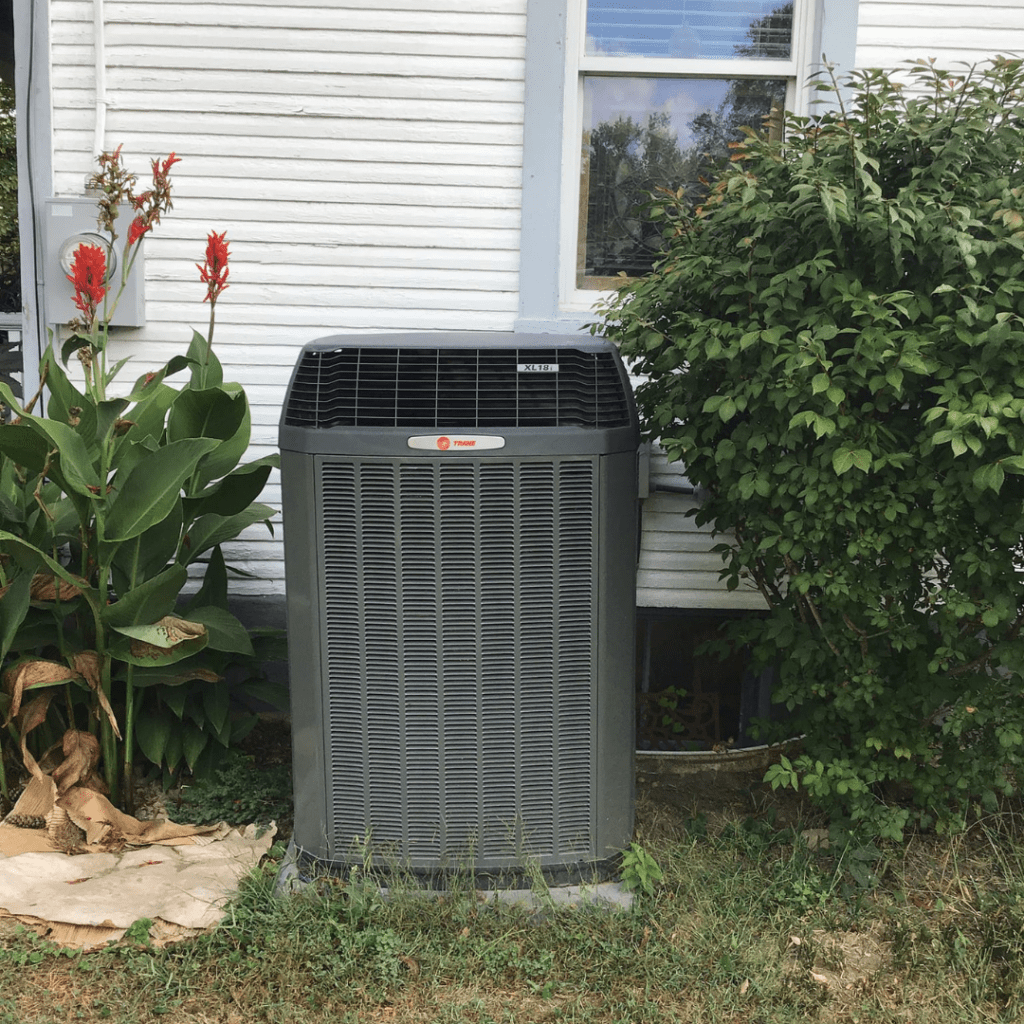What are Air Conditioning Alternatives?
Air conditioning alternatives are solutions different from a traditional central ac unit that help you cool your home. While some people have central ACs, they may be looking for options to help the efficiency of their unit by promoting cooling and clean air circulation.
If you don’t have an air conditioner, you may be looking for solutions to help you cool your home so you can beat the heat. No matter the reason, there are some of air conditioning alternatives that can help you find some relief. Below, we’ll cover alternatives to traditional ACs, when it might be time to shop for a central air conditioner, and how to make the best decision for your unique needs.
Top Air Conditioning Alternatives
Now that we’ve established a need for options for air conditioning alternatives, let’s dive into what some of these are.
Fans
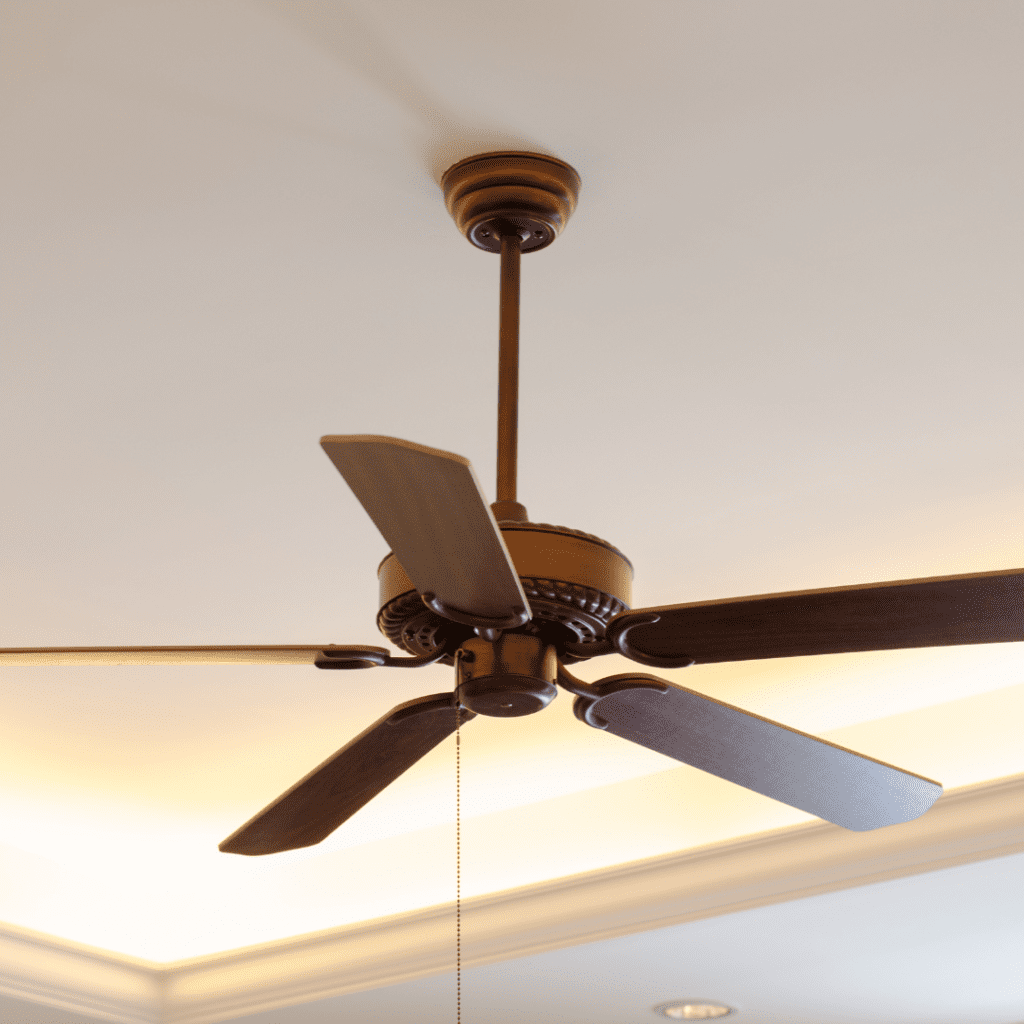
Fans can play a crucial role in keeping air circulating and creating a more comfortable living environment. With various types available, such as pedestal fans, ceiling fans, and box fans, you can choose the one that suits your needs and space requirements. Fans do not actively cool by removing humidity from the air like air conditioners, but rather help in creating a cooling sensation by improving air movement and promoting evaporation from the skin. They can be a cost-effective and energy-efficient option to complement other cooling devices or for use in smaller spaces.
Window Fans
Window fans are a simple solution for bringing in fresh air and circulating it within your home. They are particularly suitable for small spaces and can provide ventilation on a budget. By strategically placing window fans, you can optimize air circulation and create a cooler indoor environment. These fans are versatile and can be adjusted to draw in fresh air or expel hot air, making them an option for moderating indoor temperatures in moderate weather conditions; although, if anyone in your home suffers from seasonal allergies, you may only exacerbate their symptoms by use of window fans.
Whole-House Fans
Whole-house fans are installed in attics or crawlspaces and work by drawing hot air out of your home while bringing in cooler outdoor air. They are most effective in well-sealed homes, where they can rapidly replace indoor air with fresher, cooler air from outside. Whole-house fans are particularly beneficial during the evening and early morning when outdoor temperatures are lower. However, in hot and humid climates, their effectiveness may be limited, as they can bring in warm and humid air from the outside.
Thermostatically Controlled Fans
Thermostatically controlled fans offer automated cooling solutions by turning on automatically when the indoor temperature reaches a specific level. This feature can help yield a more comfortable indoor environment without the need for constant manual adjustments. They can be energy-efficient and can help you by aiding in cooling when necessary. These fans are could be useful for bedrooms and living rooms, where maintaining a consistent and comfortable temperature is essential.
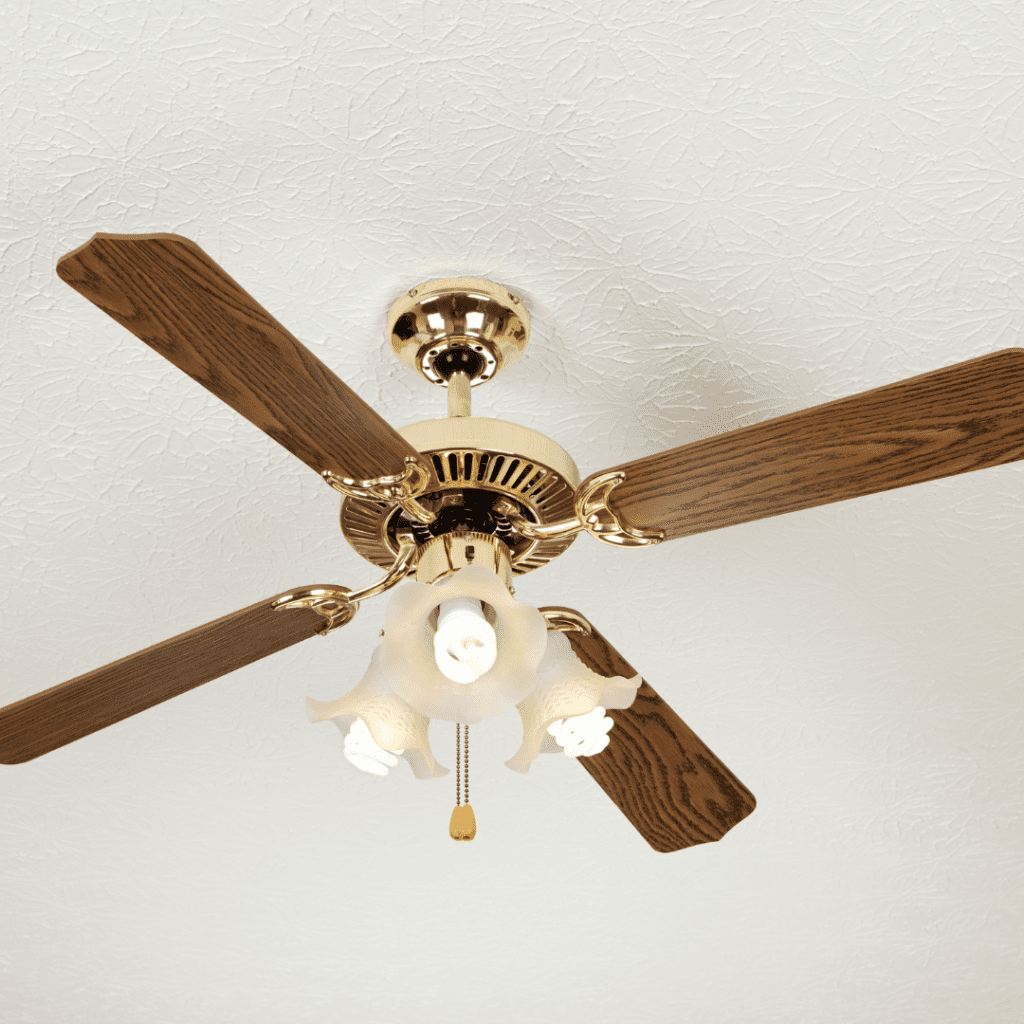
Ceiling Fans with Lights:
Ceiling fans with lights serve a dual purpose by providing both cooling and lighting solutions. They are popular choices for bedrooms and living rooms, where aesthetics and functionality matter. These fans offer energy-efficient air circulation while also illuminating the space, making them practical additions to any room. Ceiling fans with lights come in various styles and sizes, allowing you to choose one that complements your interior design.
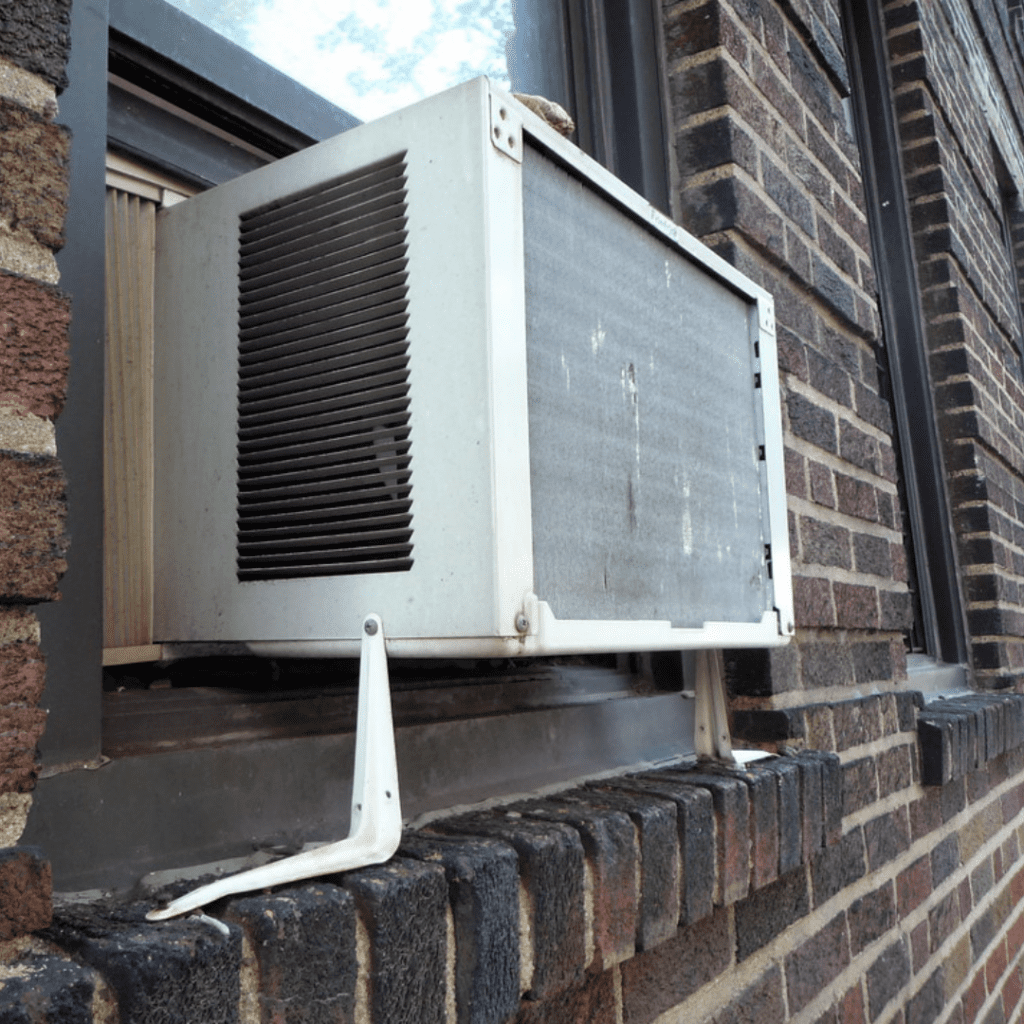
Window air conditioning units
Window air conditioning units are a type of air conditioner that is installed in a window. They can be a viable option for small spaces, such as bedrooms or offices. Window air conditioning units are relatively inexpensive to purchase upfront, but they can be noisy, difficult to install, and costly to operate.
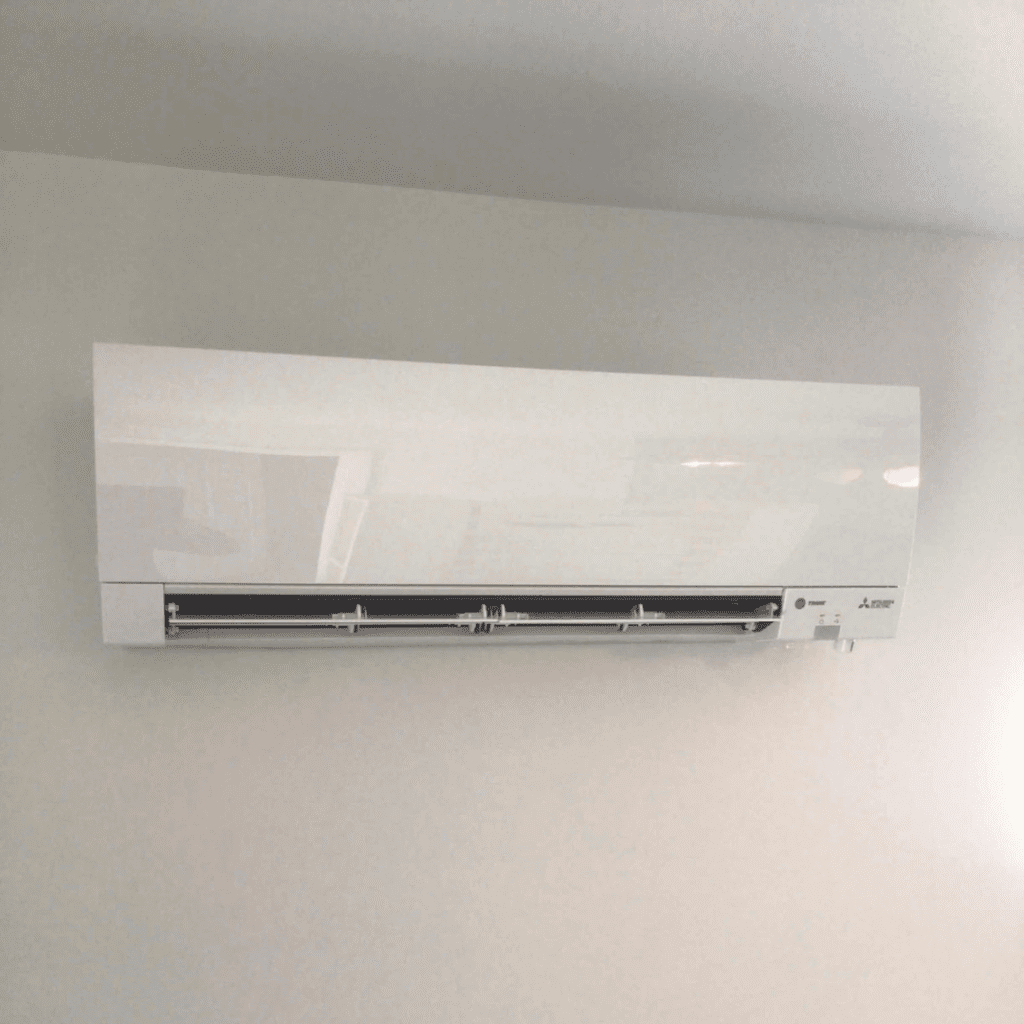
Ductless mini split systems
Ductless mini split systems are a type of air conditioner that does not require ductwork. Instead, the system has a compressor and condenser unit that is located outside of your home, and one or more indoor units that are connected to the outdoor unit by refrigerant lines. This makes them a great option for homes that do not have ductwork, or for homes where you want to avoid the cost and disruption of installing ductwork. Ductless mini split systems are also typically more energy-efficient than traditional air conditioners, and they can be used to heat and cool your home.
These are just a few of the alternatives to traditional central air conditioners. The best option for you will depend on your specific needs and budget.
How can These AC Alternatives Support My Central Air Conditioner?
Here are a few ways that AC alternatives can support your central air conditioner:
- They can help to reduce the load on your central air conditioner. This can extend the life of your central air conditioner and save you money on your energy bills.
- They can provide supplemental cooling in areas where your central air conditioner doesn’t reach. This can be helpful in homes with large rooms or multiple levels.
- They can be used as a backup cooling system in case your central air conditioner breaks down. This can help to prevent you from being without cooling during a hot summer day.
- They can help decrease your AC bill by helping cool your home more effectively
When operating with an old or inefficient air conditioner, these ac alternatives can help take the pressure off your central air system so that you can stay cool without the inefficient energy use or high utility bill each month. Most HVAC experts would recommend that a properly sized and operating air conditioner should be enough to keep the majority of your home comfortable without the use of supplemental systems.
Other Tips and Ways to Save on Your AC Bill Every Month:
- Set your thermostat to a degree or two higher. In some cases with old systems, every degree you raise your thermostat can save you marginally on your energy bill.
- Use a programmable thermostat. This will allow you to set your thermostat to different temperatures during different times of the day, which can save you even more money.
- Seal up any air leaks around your windows and doors. This will help to keep the cool air in and the hot air out, which will save you money on your energy bill.
- Use ceiling fans. Ceiling fans can help to circulate the air in your home, which can make you feel cooler without having to run your AC as much.
- Unplug electronics when you’re not using them. Even when they’re turned off, many electronics continue to draw power, which can add up to a significant amount of energy over time.
- Clean your air filters regularly. Dirty air filters can restrict airflow and make your AC work harder, which can increase your energy bills.
- Have your AC unit serviced regularly. A well-maintained AC unit will be more efficient and will save you money on your energy bills.
- Consider using alternative cooling methods. Alternative cooling methods, such as fans, are available and can help you save money on your energy bills.
- Close your curtains and blinds during the day. This will help to keep the sun’s heat out of your home, which will make your AC work less hard.
- Ventilate your home at night. If it’s cooler outside than it is inside, consider opening your windows to let in the cool air, assuming no one in your family suffers from seasonal allergies.
- Take advantage of shade. If you have trees or shrubs that provide shade, make sure to position your furniture in the shade so that you can stay cool without running your AC.
- Take cool showers or baths. This is a great way to cool down on a hot day.
- Avoid using the oven or stove during the day. These appliances can generate a lot of heat, which can make your AC work harder.
- Cook outside. If you have a grill or smoker, use it to cook your meals during the summer. This will help to keep your kitchen cooler.
How Do I Know if My AC is Working Properly?
If you’re searching for AC alternatives because your air conditioner isn’t cooling your home effectively, then this might be a sign your unit isn’t functioning properly.
Here are some signs that your AC isn’t working properly:
- Your AC doesn’t seem to be cooling your home. This is the most obvious sign that something is wrong with your AC. If your home is still hot even after running your AC for a while, it’s time to call a professional.
- Your AC is making strange noises. If your AC is making strange noises, such as squealing, humming, or rattling, it could be a sign of a problem. These noises could indicate that there is a problem with the compressor, fan, or other parts of your AC unit.
- Your AC is leaking water. If your AC is leaking water, it could be a sign of a problem with the evaporator coil or drain pan.
- Your AC is not blowing cold air. If your AC is not blowing cold air, it could be a sign of a problem with the refrigerant. Refrigerant is a gas that helps to cool your home. If the refrigerant levels are low, your AC will not be able to cool your home properly.
- Your AC is tripping the breaker. If your AC is tripping the breaker, it could be a sign of a problem with the electrical system. The electrical system may not be able to handle the load of the AC unit.
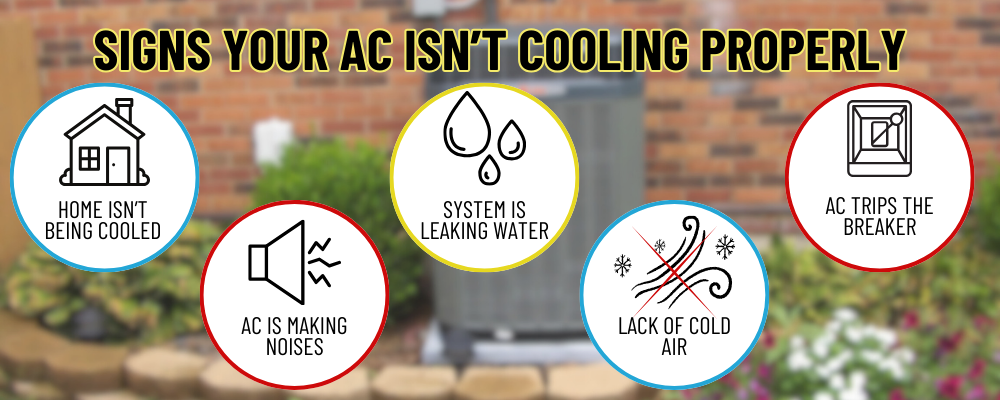
If your AC is technically working, but not well, there are a few things that could be causing the problem. Here are some of the most common reasons why your AC might not be cooling your home properly:
- Dirty air filter: A dirty air filter can restrict airflow and make your AC work harder. This can lead to decreased cooling efficiency and even damage to your AC unit.
- Low refrigerant levels: Refrigerant is a gas that helps to cool your home. If the refrigerant levels are low, your AC will not be able to cool your home properly.
- Compressor problems: The compressor is the heart of your AC unit. If the compressor is not working properly, it will not be able to cool your home.
- Fan problems: The fan helps to circulate the air in your AC unit. If the fan is not working properly, it will not be able to cool your home properly.
- Thermostat problems: The thermostat controls the temperature in your home. If the thermostat is not working properly, it will not be able to tell your AC unit to turn on or off.
- Wiring problems: The wiring in your AC unit can become damaged over time. This can lead to electrical problems that can prevent your AC unit from working properly.
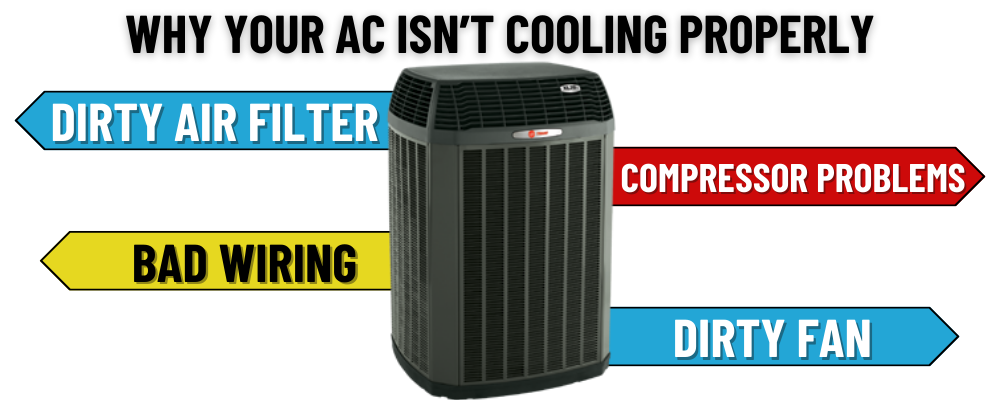
If you notice any of these signs, it’s important to call a qualified HVAC professional to inspect your AC unit and diagnose the problem. Ignoring these signs could lead to further damage to your AC unit and higher energy bills.
Is it Time to Buy a New Air Conditioning System?
When considering whether or not to purchase a new air conditioning system, there are several factors to take into account. Firstly, the age of the current AC unit is important. The average lifespan for an air conditioning system is between 15 and 20 years, but the system can fail sooner than this if routine maintenance is ignored. If the unit is older than this, it may be time to think about getting a replacement. Efficiency is another key factor. Older AC units are generally not as efficient as newer models, meaning they may struggle to cool a home effectively and could also be more expensive to operate. If the unit is constantly breaking down and requiring repairs, it may be more cost-effective in the long run to replace it rather than continue with expensive repairs that may not provide a permanent solution.
It’s also important to consider the budget. Buying a new air conditioning system can be a significant financial investment if you aren’t prepared for the upgrade. For those on a tight budget, it may be worth exploring repair vs. replacement options and, if needed, take advantage of available financing for replacement to allow for a monthly payment, rather than one upfront cost.
If a new air conditioning system is being considered, there are a few additional factors to keep in mind. Newer units are typically much more energy-efficient, which can lead to cost savings on energy bills over time. They are also designed to be more comfortable, with quieter operation and more even cooling throughout the home. Furthermore, new AC units often come with additional features for convenience and comfort, such as Wi-Fi connectivity, programmable thermostats, and remote controls.

